Given he was a Gestapo chief who meted out murder and torture to hundreds of victims, it was fitting that Klaus Barbie was dubbed the ‘Butcher of Leon’.
But it was not until decades after the end of the Second World War that the Nazi monster would face justice.
For Barbie spent more than 30 years living without fear of arrest under the false identity of businessman Klaus Altmann in Bolivia after being helped to flee post-war Germany by American intelligence agents.
Once in South America, he befriended drug lord Roberto Suarez – dubbed the ‘world’s biggest’ cocaine dealer – and helped orchestrate a coup against the country’s elected government.
A three-part Sky documentary beginning tonight features fresh revelations about Barbie’s scandalous post-war years, including interviews with people who knew the Nazi and key figures involved in the push to have him extradited.
Roberto Suarez’s son, Gary, reveals how it was ‘very hard’ when he and his mother, who was Jewish, discovered Barbie’s true identity after his arrest in 1983.
But Suarez’s other half, Ayda Levy, admits that she had suspected Altmann ever since his wife had been left ‘upset’ when she told her of her Jewish heritage.
Also revealed are the remarkable connections between Barbie, Suarez and even more infamous drug kingpin Pablo Escobar, who did business with his Bolivian counterpart.
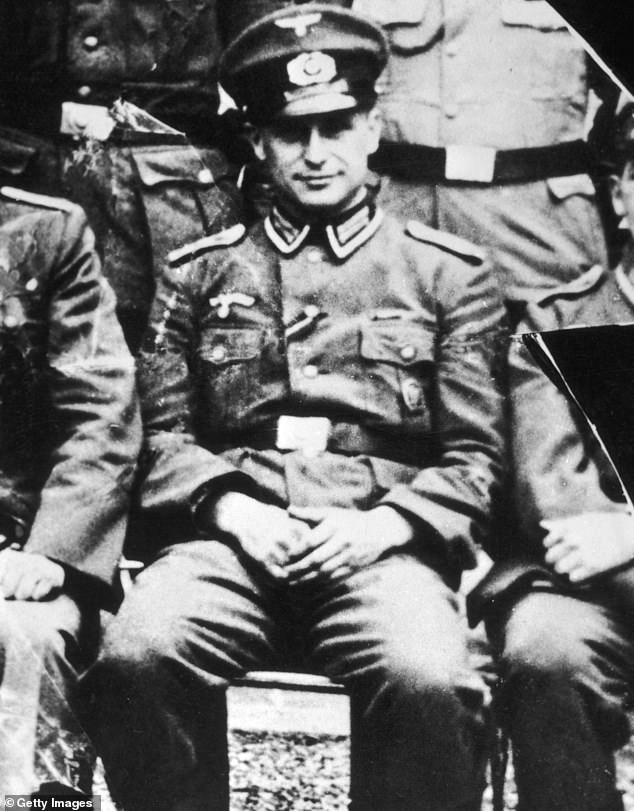
Given he was a Gestapo chief who meted out murder and torture to hundreds victims, it was fitting that Klaus Barbie was dubbed the ‘Butcher of Leon’
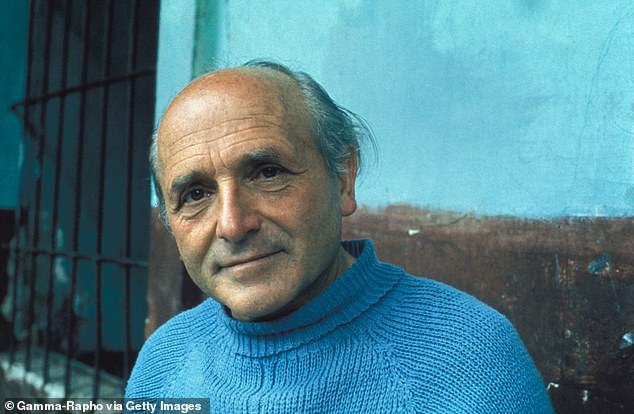
Barbie spent more than 20 years living without fear of arrest under the false identity of businessman Klaus Altmann in Bolivia. Above: In La Paz, Bolivia, in 1973
During the war, Barbie had been an officer in the murderous Nazi SS and was head of the Gestapo in the occupied French city of Lyon.
There, he tortured and murdered hundreds of French men and women in a seized suite in Lyon’s Hotel Terminus.
Among his youngest victims were 41 Jewish children seized from a school and sent to the gas chambers at Auschwitz.
Overall, he was found to have had just over 14,000 people arrested, around 8,000 deported to concentration camps and more than 4,000 murdered.
When the war came to an end, Barbie was a wanted man as a suspected war criminal.
But American officials turned a blind eye to his crimes and instead employed him as an intelligence officer.
A request to have him extradited back to France came to nothing. Instead, in 1951, Barbie fled with his family via the infamous ‘Rat Line’, with the financial support of America.
It was also the US who gave him his new name.
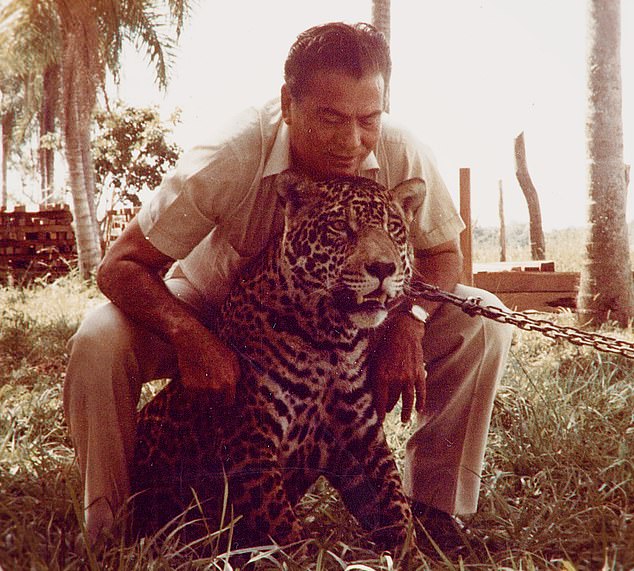
Barbie befriended drug lord Roberto Suarez (pictured with one of his pet jaguars), who was dubbed the ‘world’s biggest’ cocaine dealer
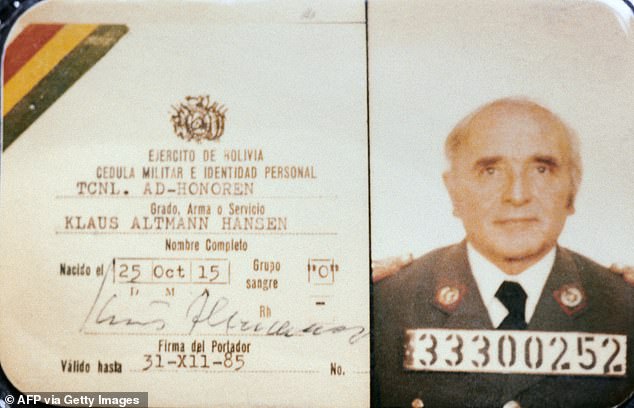
Barbie was made an honorary lieutenant colonel in the Bolivian army
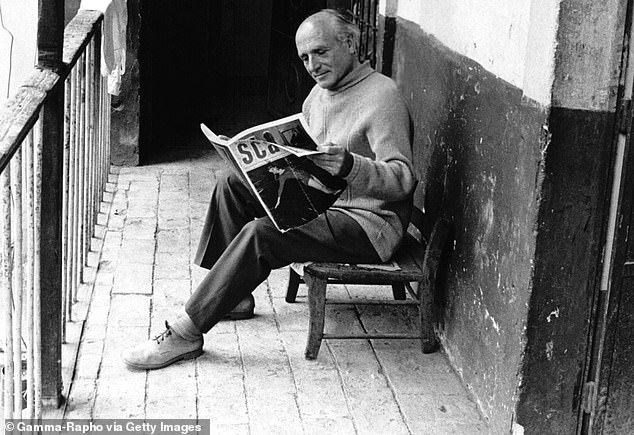
Barbie pictured in La Paz in 1973. He was briefly arrested after being confronted about his true identity
After arriving in Bolivia, Barbie initially lived in seclusion in the jungle.
Speaking later in an interview, he said: ‘So I arrived here in La Paz. No money. Only thirty dollars and my family.
‘My life here in Bolivia was never boring. Always something different. Except for three years when I was living in the jungle, where I had about 12,000 square kilometres of land.
‘At the sawmill. There I recovered from the war.’
After a few years away from the spotlight in the jungle, Barbie moved with his family to the city of La Paz in the west of Bolivia, where he became a well-connected businessman.
TV show The Nazi Cartel, which begins tonight on Sky Documentaries, also hears from a school friend of Barbie’s daughter, who recalled using cutlery embossed with the Nazi eagle when she went to dinner at the Barbie family home in Bolivia.
She says she was left ‘startled’ when Barbie shouted at her, saying: ‘You must have brought that with you!’
The friend adds: ‘I was very startled. It was clear that he wanted to hide something.’
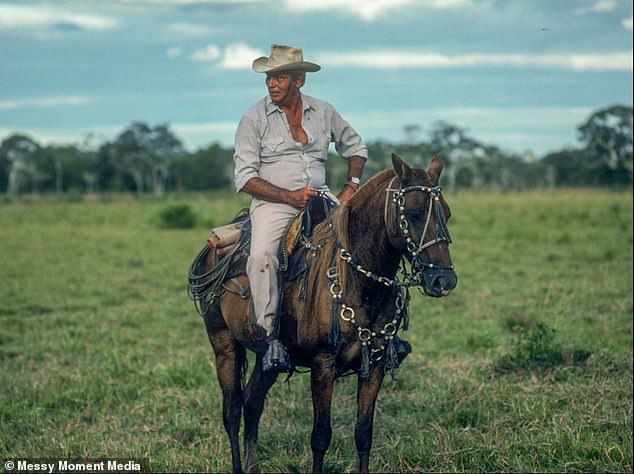
Roberto Suarez came to control around 80 per cent of the world’s supply of cocaine
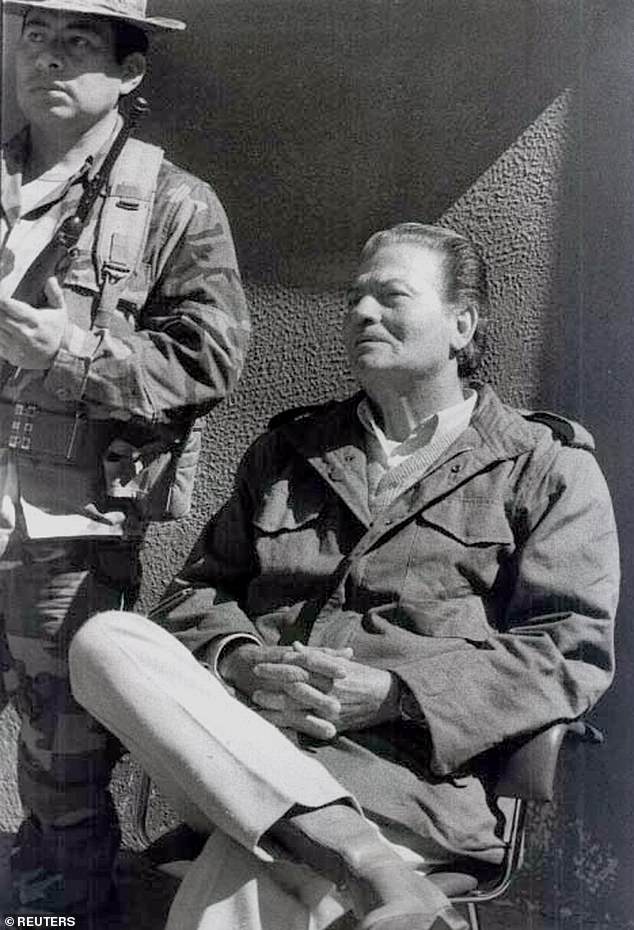
Suarez is pictured being presented to journalists in jail in La Paz in 1988
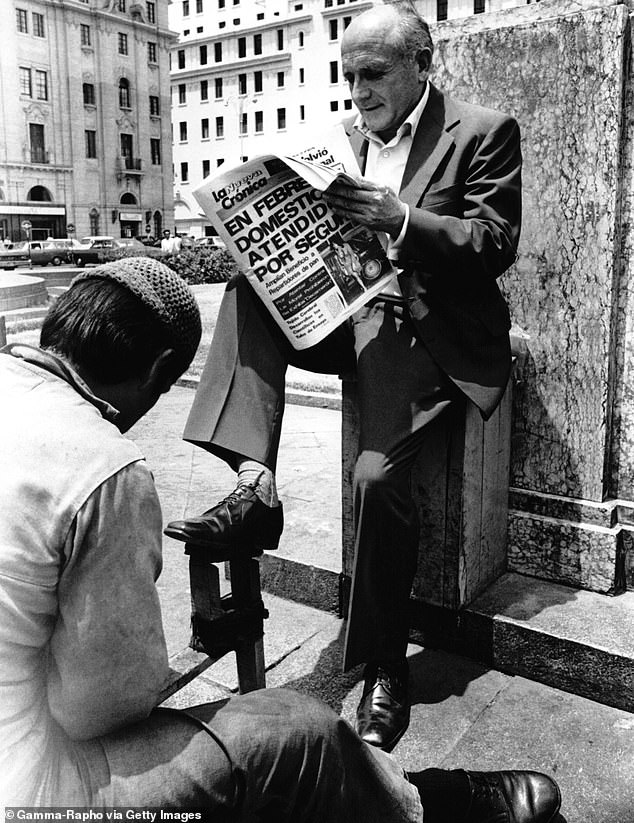
Barbie having his shoes shined in Lima, Peru, in 1972
Nazi hunter Beate Klarsfeld played a key role in tracking Barbie down to Bolivia after finding a German document detailing a criminal case against him.
She went to South America in the 1970s with a Holocaust survivor and French journalist Ladislas de Hoyos, who interviewed Barbie – then still posing as Altmann – on camera.
After being shown damning wartime photos of himself, the Nazi insisted: ‘I am not Barbie, as I said before. I’m Klaus Altmann.’
When it was pointed out that Barbie’s wife and children had the same names as his relations, the war criminal insisted: ‘I think this could be a coincidence.’
But he then brazenly admitted that he was being ‘protected’ rather than ‘monitored’ by the Bolivian police.
Ms Klarsfeld says: ‘You can see that he never regretted his crimes. That he was arrogant. And that he generally tried to talk his way out of it.’
French extradition requests sent to the Bolivian government were ignored and Barbie continued living without fear of arrest.
Eduardo Escarrunz, the former head of Bolivian state television, says: ‘Nobody suspected that this nice man who ate pork knuckles with sauerkraut at the German club was none other than the “Butcher of Leon”.
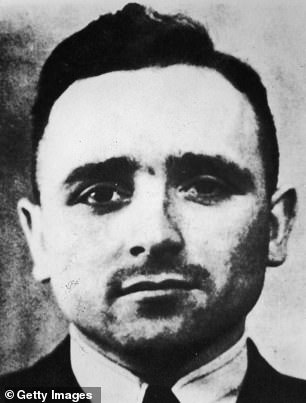
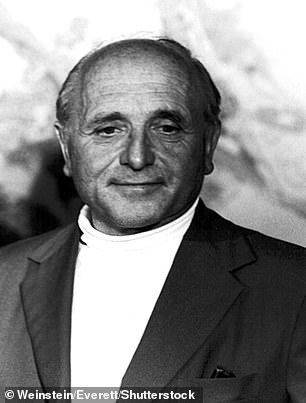
Barbie (pictured left in 1945 and right in later life) was found to have had just over 14,000 people arrested, around 8,000 deported to concentration camps and more than 4,000 murdered.
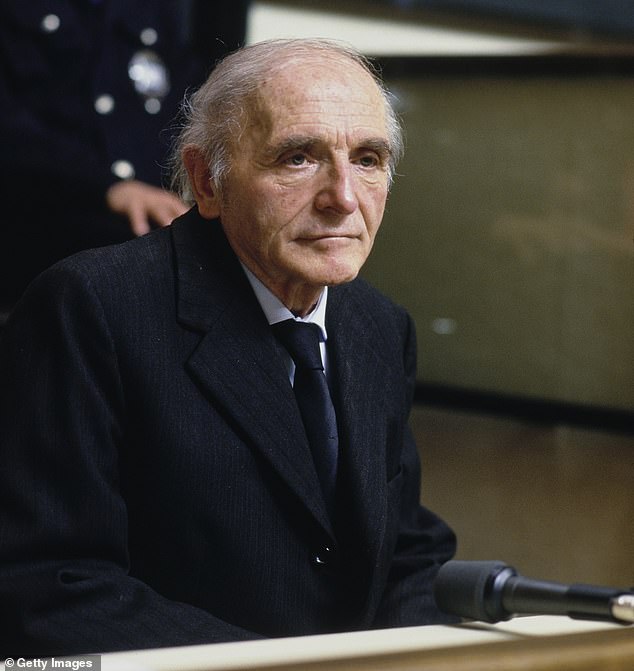
Klaus Barbie sits behind a glass screen at the opening of his trial in Lyons, France, May 11th, 1987
Barbie’s business contacts brought him into the circle of Suarez, whose drug dealing operations were expanding.
Whilst Suarez was likely aware of his real identity, the drug lord’s family were not.
The late criminal’s widow, Ayda Levy, recounts how a conversation with Barbie’s wife led her to suspect that he had been in the Nazi regime.
‘During a conversation, I told her that my maiden name was Levy, and that my father, Shalom Levy Simonds, was born in the Jewish community in Haifa,’ she says.
‘She had been so cheerful and chatty the entire time. She changed completely.
‘She was upset. I told my husband about this change in his wife’s attitude. I concluded, saying that my sixth sense tells me they weren’t who they said they were.
He replied furiously, “You’re wrong. She’s cold and a bit strange. Like all Germans.
“But he has great contacts to governments in neighbouring countries, which could be useful to me in future.”‘
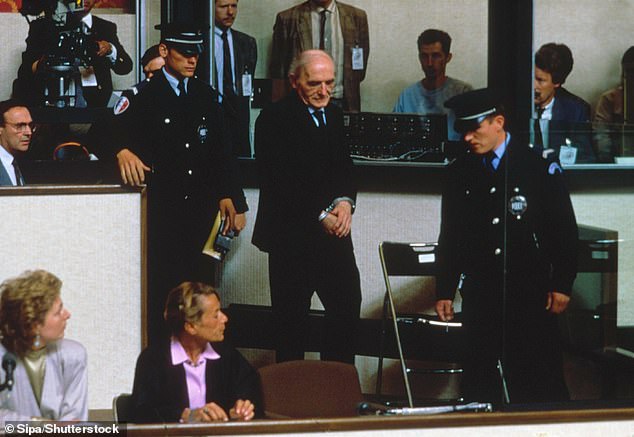
Barbie being led to the dock at his trial in Lyon, 1987
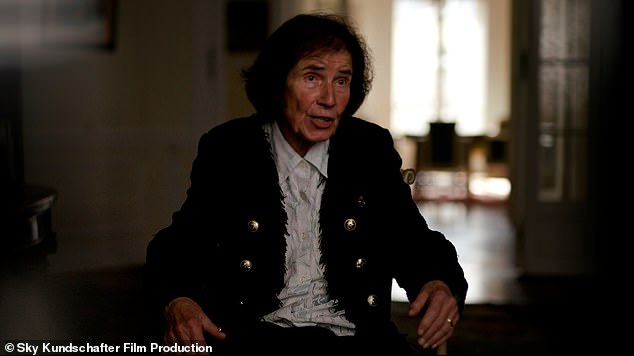
Nazi hunter Beate Klarsfeld played a key role in tracking Barbie down to Bolivia after finding a German document detailing a criminal case against him
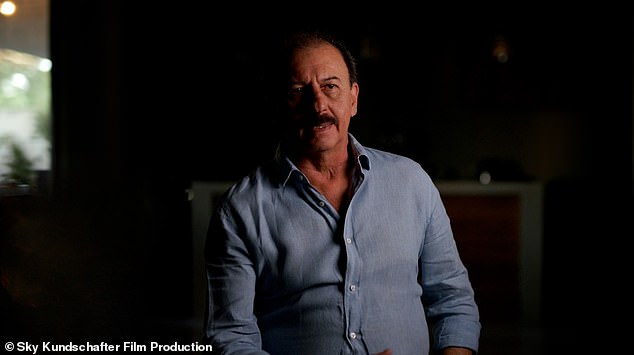
Roberto Suarez’s son, Gary, reveals how it was ‘very hard’ when he and his mother, who was Jewish, discovered Barbie’s true identity after his arrest in 1983
Suarez and Barbie became key allies, with both having an interest in backing a coup.
An overthrow of the elected government would allow Suarez free reign in his criminal enterprise, whilst Barbie’s fears of being extradited would be quelled.
German investigative journalist Christian Bergmann says in the Sky documentary: ‘Klaus Altmann wanted a coup for other reasons that were related to his past.
‘His true identity was not known and this identity was better protected in a military government than in a democracy.’
The coup in 1980 saw the installation of Bolivian general Luis García Meza as the country’s leader.
Brutal repression of the nation’s people quickly followed. And Barbie’s extensive knowledge of torture was put to good use.
The Nazi was appointed an honorary lieutenant colonel in the Bolivian army and given responsibility over government security.
His ID card showed him in military uniform, with his fake name proudly displayed.
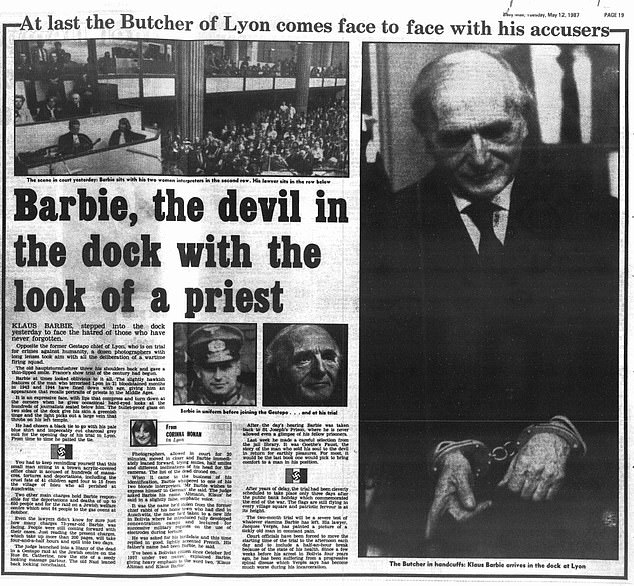
The Daily Mail’s coverage when Barbie’s trial started in Lyon in 1987
He brought over paramilitary groups – which included German former SS members – to Bolivia. One such group was called the ‘Fiance’s of Death’.
And Barbie became a crucial link between the new government and Suarez’s extensive drug dealing operation, which by then had come to the attention of Colombia’s Pablo Escobar.
Suarez and Escobar did a deal that saw the Bolivian deliver his counterpart 40 tons of cocaine each week.
The Sky programme also raises the prospect that Barbie may have been in contact with the CIA to help keep the Left at bay amidst the fight against Soviet Communism, and that the US intelligence agency may have helped the Bolivian coup succeed.
However, amid pressure on the regime from the US Drug Enforcement Agency (DEA), Meza was forced out of power in the summer of 1981.
Suarez was by then on the run, and Barbie was terrified that his protection from the government was about to cease.
With the coup regime having been forced from power and eventually replaced by the previously elected president, the Nazi was finally arrested in early 1983.
His extradition was announced soon afterwards. In a filmed interview during his journey to face justice, Barbie insisted that France and Europe should ‘forget’ about his crimes.
‘I have forgotten. If they can’t let it go, that’s their problem,’ he said.
Asked separately if he regretted anything, he said: ‘No, not really. I have fulfilled my duty.’
Gary Suarez says of Barbie’s arrest: ‘Altman’s deportation, and the news that he was Klaus Barbie, the “Butcher of Leon”, confirmed my mother’s suspicions.
‘It was hard to believe that this person, with whom we had shared so many moments, in different phases of our lives, was such a monster.
‘When we discovered this man’s true identity, it was very hard for us. Very difficult to accept and understand for me and my siblings and for my mother.’
He adds: ‘Some of my grandfather’s relatives disappeared in France. Some even in Lyon. That was very painful for my mother.’
At his trial, survivors recounted Barbie’s merciless executions, severe beatings and horrifying torture sessions.
The German seemed to experience pleasure when pain was inflicted.
Having been found guilty of crimes against humanity, he was sentenced to life in prison.
He would die age 77 four years later from cancer.
Suarez meanwhile was arrested by Bolivian police in 1988. He was jailed but served behind bars only until 1992. He died in 2000 and was never extradited.












